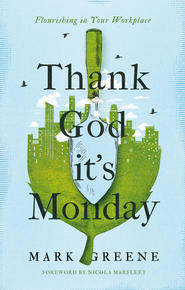
Scroll back to 1994 in the UK: no iPhone, no Facebook, no Uber, no Skype, no PayPal, no delivery drones, no Strictly, and no Starbucks – what on earth did we do all day?
People entering today’s job market are likely to have six, seven or eight entirely different jobs in their working life, and many of the jobs they start out doing won’t even exist in 20, 10 or 5 years time. And the number of people in the gig economy, the number of people on zero-hour contracts, the number of people working into their 70s is rising. Artificial Intelligence is humming along, reshaping working practice across pretty much every sector – from transport to law, even counselling. And the robots are coming.
The result is that there’s anxiety in the air. It has been there for most of the last 25 years, except now it feels more pervasive, cutting across social and economic strata. Employment is up but many of our jobs are less secure. We are less confident that we could easily get another one, and less sure that our pay will keep pace with the cost of living. This generation will be the first since the Second World War to be worse off than their parents.
Yes, things are changing. And in this context the Christian’s role in our workplaces is even more important. In a time of anxiety, we are called to model the peace that comes from the prince of peace. In a season when fear can lead to short fuses we are called to patience and compassion. In a period, when some may feel pressured to cut corners, to treat team members as rivals, we are called to integrity and generosity and compassion. And in a time when wisdom is required, we are called to seek it and find ways to offer it.
Back in 1994, there wasn’t that much teaching on work at all. Far too many Christians thought that work was the thing they did to pay the bills, support the church, and try to have evangelistic conversations. Churches rarely had a vision for the 95% of time that the 98% of God’s people who aren’t ordained spent away from church activities. Yes, people might pray for each other’s work crises but not for each other’s daily mission in and through their work, not for the work itself, the bosses, the organisation’s ongoing prosperity, the salvation of individuals known by name.
Marriage prep has become a natural part of church life but preparing for the challenges and opportunities of 50 years of work hasn’t.
In the last 10 years, there’s been a shift. A growing number of church leaders have grasped the need for whole-life disciple-making. And more and more are seeking to offer Sunday worship and praying and preaching that integrates the opportunities of scattered Monday to Saturday life with the concerns of the gathered church community. Still, you won’t find many churches where the 16 year-old going for their first holiday job at the Co-op is taught a theology of work. You won’t find many churches where people going to work have a biblical vision for God’s purposes for them there. Marriage prep has become a natural part of church life but preparing for the challenges and opportunities of 50 years of work hasn’t.
That’s why we’ve revised Thank God it’s Monday for a new generation. All through the last 25 years, I’ve seen its impact on individuals and, more broadly, I’ve seen the transformative impact Christians can have when they have a vision for work, when they pray into it, when others get behind them. It’s good news for the work, it’s good news for their co-workers, and it can be good news for their organisations.
Ours is a high calling, however lowly the job.
Mark Greene is the Executive Director of LICC – licc.org.uk. Thank God it's Monday is now available to order at muddypearl.com





























